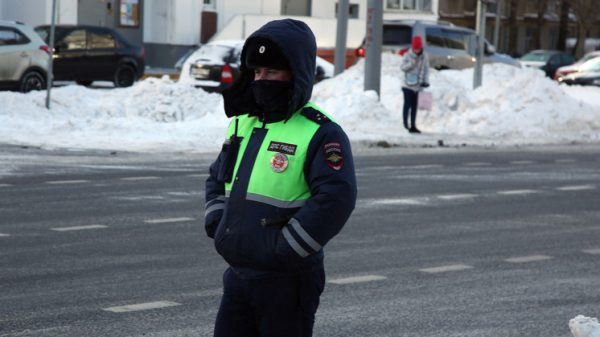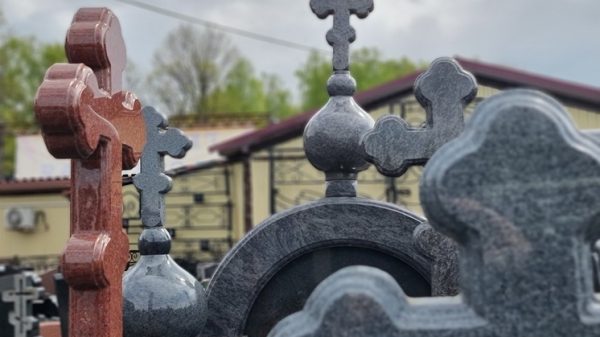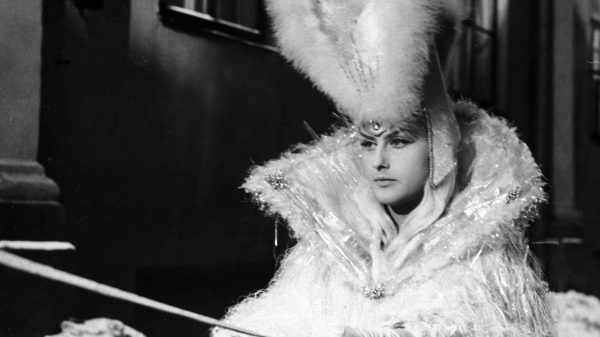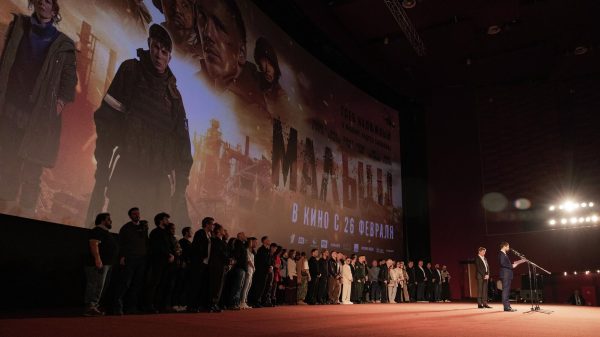 Sepp Blatter wrote his autobiography entitled Overtime. Photo: Siggy Bucher
Sepp Blatter wrote his autobiography entitled Overtime. Photo: Siggy Bucher
Sepp Blatter returned to FIFA. Nearly eight and a half years since he last occupied the most powerful position in world football, the «Godfather» of the modern game has returned to the FIFA House he built.
He, of course, cannot enter. He was banned from doing so after being kicked out of the sport during the biggest corruption scandal in history. Thus, visiting FIFA's Zurich headquarters up close brings back bittersweet memories of a man who went from being untouchable at the highest levels of football power to being persecuted as a villainous traitor.
Blatter is here promoting a new autobiography, aptly titled Overtime, in between interviews about the book at a nearby restaurant. Here he recounts his extraordinary fall, the criminal prosecution against him he said nearly died during the battle, and his fears that it might follow him to the grave.
“The angels were approaching. I said I'm not ready to go»
Blatter has just turned 88 and is noticeably frailer than the man who held the FIFA presidency for 17 years, although he still looks sharp in a dark blue suit and open-necked white shirt. As he begins to speak, it becomes clear that what his friends call his unique charisma and his enemies call his boundless ego remains unchanged, as does his talent for theatrics.
“Not the president,” says him when he starts talking. before adding, asked how he preferred to be addressed. “I am the “president” of France. Because you will never lose your title by being promoted in France.»
For those who believe what Blatter complains in his book portrays him as «a thief, a swindler, a liar, a fraudulent deceiver or a document falsifier with criminal intent», losing his title is the least he deserves. To them, he is a mafia don who should be put in jail. Like the henchmen who were hidden under the sheets during the early morning FBI raid on their favorite luxury hotel in Zurich on May 27, 2015.
They can still make their wish come true. Having avoided a fate similar to those FIFA executives who were extradited to the US (Switzerland does not hand over its citizens to foreign powers), Blatter has since been pursued for years through his country's criminal justice system.
He thought that it was all over in July 2022 when he and Michel Platini were found not guilty of fraud and other offenses in connection with the notorious two million Swiss francs (£1.8 million) Blatter paid the ex-UEFA president for his 11-and-a-half year sentence. previously. But an appeal was filed against their acquittals, which dragged the saga into the ninth year.
All this seriously undermined Blatter's health. On the first day of the trial, he told the court that he was too ill to testify due to chest pains. This comes after he underwent heart surgery a year and a half ago, which left him in an induced coma for a week. The latter culminated in what he now calls a typical near-death experience.
“I was hallucinating,” he recalls. “I saw that the angels came for me and wanted to take me away. And I said, “No, I'm not ready to go.” I was in a coma, I was not at home, and I was looked after by two nice ladies in white clothes, and I had some kind of breathing machine. And then they had to change it. But in my dream—or, at the time, in my reality—there were angels. They said, «You must come.» You must die now. They are waiting for you in heaven.» It took me more than three months to realize that I was still alive.»
 Blatter believes his trial in Switzerland contributed to his health problems. Photo: Ziggy Butcher
Blatter believes his trial in Switzerland contributed to his health problems. Photo: Ziggy Butcher
Regaining consciousness, he says he was at first motionless and speechless, the latter initially returning only in the form of the dialect of his homeland Valais, followed by French, English and Spanish.
< p>This is not the first time Blatter has said he is «very close» to death. In November 2015, weeks after he was prosecuted and banned by FIFA over the payment to Platini, he told Swiss television station RTS that he had fainted while visiting his parents' grave. He added: “I was among the singing angels and the devil with the fire. But the angels sang.”
His final brush with mortality convinced him that he was always destined to achieve a higher goal. “I was born premature. My weight was one kilogram 250 grams [2.76 pounds],” he says, recounting his fears that he “wouldn’t survive.” He adds: “They say my mother must have been a saint.”
Americans are bad losers. FIFA headquarters in Zurich. Photo: Ziggy Bucher
Blatter says he suspects those pursuing criminal charges against him in Switzerland, including FIFA itself, are counting on him to finally capitulate to a retrial to avoid having to win again in court. He also claims to have received information that US authorities investigating the theft of $200m (£156m) from the game, which was described in 2015 as a «World Cup scam», were planning to put him in «cuffs». «if he ever went there.
The US may have missed its chance. Six months ago, a New York judge overturned two convictions in the FIFA scandal, citing a ruling earlier in May by the country's Supreme Court that foreign commercial bribery schemes are not prohibited under American law. More appeals are expected from those brought to justice, thanks in part to one of Blatter's corrupt executives, the late Chuck Blazer, who turned himself into a supergrass and secretly recorded colleagues using a key fob with a hidden microphone.
“The Americans are bad losers,” says Blatter, who has always suspected that what happened in 2015 was retaliation for the now infamous awarding of the 2022 World Cup to Qatar in December 2010 at US expense. For that he still blames Platini, whom he blames for tilting the tournament vote in favor of the tiny Gulf state. Blatter claims Platini succumbed to pressure from then French President Nicolas Sarkozy, who was forging strong ties with Qatar. Sarkozy and Platini deny this. Blatter has always maintained that his own votes were given to the United States.
Whatever the motives of the US authorities, the bidding process for the 2018 and 2022 World Cups is undoubtedly mired in bribery and corruption. The same could be said of FIFA itself for most of Blatter's time there, not only throughout his long reign as president, but throughout his entire 25-year career. So much so that the most enduring image of the era is of him being showered with counterfeit banknotes by British comedian and serial prankster Simon Brodkin at the height of the 2015 scandal.
 Blatter has counterfeit dollar bills thrown at him at FIFA headquarters in 2015. Photo: Getty Images/Fabrice Coffrini
Blatter has counterfeit dollar bills thrown at him at FIFA headquarters in 2015. Photo: Getty Images/Fabrice Coffrini
Blatter was not amused. «The people who did this are not friends of football — definitely not,» he says of the stunt. «And they have to ask themselves, how much damage have they done to the game?»
Blatter has always denied any personal involvement in giving or receiving bribes. In 2013, he was acquitted of charges of deliberately handling a gag intended for his predecessor João Havelange. He said he knew nothing about the brown envelopes stuffed with cash that allegedly changed hands during his first presidential campaign in 1998. And he said the same about South Africa's $10 million (£7.85 million) payment, which the Government also denies was intended to bribe votes to secure the 2010 World Cup.
It remains a source of deep resentment that his continued ban from football was courtesy of the FIFA ethics committee set up during his presidency. “My committee,” he laments. Both he and Platini claim that the payment for their 2015 suspension was for work done on Blatter's 1998 election campaign, during which they entered into a «gentlemen's agreement» to postpone it to a later date. The timing of Platini finally receiving the money, between the 2022 World Cup award and Blatter's re-election bid in 2011, could hardly have been worse.
Two years ago, as Blatter's six-year ban was ending, FIFA's ethics committee extended his banishment until June 2027. It comes after it was revealed he had accepted improper economic benefits totaling 23 million Swiss francs (£20.4 million) and approved payments or bonuses totaling £20.4 million. a further 46 million Swiss francs (£40.8 million) to other officials. He decided not to appeal the verdict of the organization, which, in his words, became the “extended hand” of his successor Gianni Infantino.
Blatter's new book is largely a polemic against his fellow Swiss polyglot and is a memoir of his own career, with Infantino accused of a «vendetta» against him and seeking to «destroy» his legacy. This includes expanding the World Cup to 48 teams, the «absurd» holding of the 2030 World Cup on three continents and the upcoming coronation of Saudi Arabia as host four years later.
«Overtime,» which features contributions from Blatter's daughter and other figures, portrays its author as an unfairly persecuted patriarch who both saved FIFA and «created the monster» that made it and the World Cup what they are today. The book also provides an account of his criminal trial — «I kept feeling like I was in the wrong movie» — and some of the other corruption charges brought against him. But not all controversies have been addressed, especially those for which he was ridiculed: for example, his proposal to use football to bring peace to the Middle East — and his desire to win the Nobel Peace Prize; his claim of racism could be resolved with a handshake (a comment he later retracted); or his suggestion that female players wear «tighter shorts» to promote the women's game. Of course, there is no mention of former US women's national team goalkeeper Hope Solo's categorically denied accusation that he raped her — «I made Sepp Blatter grab my ass» — at the FIFA Ballon d'Or ceremony 11 years ago.
'English football is too successful'
Reflecting now on his 42 years at FIFA and whether he had simply clung to power for too long, he says: “If only I had always gone back to that , what was wrong, what would have been better, then I would start to put myself in situations where I say (lowering my voice), “Oh, you’re a bad boy.” You're a bad boy already at school.» He adds: “Let's say I don't regret what I did, and especially don't regret what I didn't do.”
He prefers to focus on the good moments, his personal achievements. clip including Queen Elizabeth II's reception at Buckingham Palace two decades ago to mark FIFA's 100th anniversary — «one of the greatest events of my life.» He remains keenly interested in the royal family, having previously mentioned a doctored Mother's Day photograph of the Princess of Wales and her children.
Blatter's attachment to the British monarchy did not help football «come home» when England were twice humiliated in the World Cup title race during his reign, and he suggests the country's position in the game has deteriorated further since the late Queen's passing. He laughs when asked why previous bets were wrong and what can be done to bring the tournament back to what he calls «The Motherland.»
“I would say, in my life I will not witness this!” He says. «The problem is that English football is too successful.» He also warns that there are still certain stereotypes about the British — «turn up your nose» (imitating an accent): «We are British.» We are English.» He says he would like football to do «something special for England». But he adds: «Who would say that now that the game is in Arab hands?»
 Blatter would like to see England host the World Cup, but is pessimistic about it becoming a reality. Photo: Ziggy Boocher < p>He talks about the changes he would make if he were still at FIFA, including to the video assistant referee system it oversees. “I would say: 'We should have the same system for all of football', not just the rich. Because it's a system for the rich.» Of sins in sport, he adds: “Let the game be as simple as it is.”
Blatter would like to see England host the World Cup, but is pessimistic about it becoming a reality. Photo: Ziggy Boocher < p>He talks about the changes he would make if he were still at FIFA, including to the video assistant referee system it oversees. “I would say: 'We should have the same system for all of football', not just the rich. Because it's a system for the rich.» Of sins in sport, he adds: “Let the game be as simple as it is.”
But despite his pilgrimage to FIFA headquarters, he wants to make it clear that he is not dreaming about it. returning, saying, “I don’t miss the presidency. I still live for football because I can’t forget football.
“I spent 42 years in FIFA, but I am aware that I am outside the game. Left the game physically. But I'm still in the game that was my passion and my mission. I was like a missionary. And a missionary never gives up.”
He adds, “All I want is what my daughter says in the book, for someone to say, 'Thank you for what you did.' That's all. Nothing special.”
Overtime by Sepp Blatter is available in German on the Helvetia Verlag website






















































Свежие комментарии